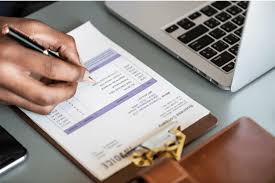You’ll need to establish a strong credit rating if you want to apply for a credit card, finance a car, start a business, or receive a mortgage to buy a house. This guide has covered many grounds on how to establish credit for yourself or your business, including how to get credit with no credit history, how to get the best credit card, and why it is important for you to establish credit, among other solid facts you need to know. Let’s kick-off!
What Is Established Credit?
Established credit is your credit history, which gauges your ability to repay loans and your accountability in repaying them. Your credit history is documented in your credit report, which includes the number and type of credit accounts you have, the length of time each account has been open, the amounts owed, the amount of available credit used, whether bills are paid on time, and the number of recent credit inquiries from potential lenders.
Why Is It Important to Establish Credit?
It is quite important to know how to establish credit for your business or otherwise. Before a bank, mortgage lender, or financing firm will lend you money, they will assess your risk. What they want to know is whether or not you will repay them. Your credit information informs them how you’ve handled credit in the past, which helps them estimate whether you’ll make future payments.
Potential lenders cannot determine or establish your financial reliability if you do not have a credit history. This may result in your application being denied.
A strong credit rating will not only help you get your credit applications approved, but it will also help you save money. This is because having a strong credit score increases your chances of being approved for credit at the best prices.
How to Establish Credit for Business
While it may appear that having no credit is a positive thing because it shows that you’ve been financially stable enough to pay cash for every transaction you’ve ever made, lenders want assurance that if they lend you money, you won’t take it and go.
If you’ve concluded that you don’t have a credit history, or that the history you do have isn’t enough to get you approved for a typical credit card, here are several alternatives on how you can establish credit for your business:
#1. Get a secured credit card
If you’re starting from scratch, you’ll most likely need to start with a secured credit card. A secured card is backed by an initial cash deposit, which is usually equal to your credit limit. The minimum and maximum deposit amounts vary by card. Several cards need a minimum deposit of $200. Alternative credit cards that do not require a security deposit are now available from firms such as Avant, Deserve, and Petal.
You’ll use the card like any other credit card: buy stuff, make payments on or before the due date, and pay interest if your balance isn’t paid in full. After you end the account, you will receive your money back.
Secured credit cards are not intended to be used indefinitely. The goal of a secured card is to grow your credit sufficiently to qualify for an unsecured card, which does not require a deposit and offers higher rewards. Choose a secured card with a modest yearly cost that reports payment information to all three credit bureaus, Equifax, Experian, and TransUnion. Your credit score is calculated using information from your credit reports or credit card that report to all three bureaus enables you to construct or establish a more complete credit history and this step is a good factor that can help you establish enough credit for your business.
#2. Get a credit-builder product or a secured loan
This is yet another valid point that can establish credit for your business or otherwise. A credit-builder loan is precisely what it sounds like: it exists solely to assist people in building credit.
Generally, the money you borrow is held in an account by the lender and is not released to you until the loan is returned. It’s a sort of forced savings plan, and your payments are recorded to credit bureaus. These loans are typically provided through credit unions or community banks; Self provides them online.
In addition, if you have money on deposit with a bank or credit union, inquire about a secured loan for credit-building purposes. The collateral in these cases is money in your account or a certificate of deposit. The interest rate is normally slightly higher than the account interest rate, but it may be much lower than your other options.
#3. Make use of a co-signer
A co-signer can also be used to obtain a loan or an unsecured credit card. But, make sure that both you and the co-signer realize that if you fail to pay, the co-signer will be held liable for the whole amount outstanding.
#4. Become an authorized user
A family member or significant other may be willing to add you to his or her card as an authorized user. Because doing so adds the card’s payment history to your credit files, you’ll want a principal user with a long history of timely payments. Also, being added as an authorized user can shorten the time it takes to create a FICO score. It is especially beneficial for a young individual who is just starting to develop credit.
You do not need to use or even establish a credit card to profit from being an authorized user.
Inquire with the principal cardholder whether the card issuer discloses permitted user activity to credit bureaus. Such activity normally is reported, but you’ll want to make sure otherwise, your credit-building efforts may be squandered. Before you’re added as an authorized user, you should agree on whether and how you’ll use the card, and be prepared to pay your portion if that’s the arrangement you strike.
#5. Practice good credit habits
A strong credit score takes patience and a track record of timely payments.
To have a FICO score, you must have at least one account that has been open for at least six months and at least one creditor that has reported your activity to the credit bureaus in the last six months.
To improve your credit score, follow these steps:
- Strive to make your payments on time, and if possible, pay at least the minimum. The most important thing you can do to assist raise your credit score is to make your credit card or loan payments on time, every time. It is also beneficial to your credit score if you are able to pay more than the minimum.
- Keep your credit use low if you use credit cards. The fraction of your credit limit that is used is referred to as low utilization. Wherever feasible, maintain your credit utilization on all cards below 30%. The lower your utilization, the higher your score.
- Avoid applying for numerous credit accounts at the same time. Credit applications can cause a tiny, temporary decline in your score. Numerous applications can do a lot of harm. Whenever possible, we recommend separating applications by six months and studying the best credit card for your needs before applying. It is important to note that repeated applications for auto loans or mortgages in a short period of time will be grouped together as “rate shopping.”
- Maintain credit card accounts. Consider keeping an account open unless you have a strong cause to close it, such as a high yearly charge or terrible customer service. You could also consider lowering it or shifting your credit limit to a different card. Closing an account can reduce your average account age and minimize your credit use.
How Long does it take to Establish Credit?
While the steps to build credit may just take a few hours, to establish your credit score for your business may take some time. This is due to the fact that banks and lenders often only update your credit report every four to six weeks.
However, because lenders often consider new credit as a sign of danger, it will take a few months before any new credit accounts begin to enhance your credit score.
Common Mistakes when you Start Building Credit
When establishing credit for the first time, avoid making the following typical mistakes:
#1. Applying for an excessive number of credit products
When you apply for credit, the lender will run a credit check. There are two types of searches: hard and soft. You may learn more about the distinctions between the two by reading our guide. Other lenders can see hard searches. When you have a lot of credit applications, it gives the impression that you are in financial trouble. This could harm your credit score.
#2. Late or missed payments
A single late or missing payment on a loan or credit card can have a negative impact on your credit score. Set up direct debits to ensure that all of your payments are made on time.
#3. Taking on debt
Use your credit card only for purchases you can afford. If you accumulate debt that you are unable to repay immediately, it may result in costly interest charges, making it more difficult to repay what you owe. This could cause financial troubles and harm your credit rating.
#4. Not paying off a credit card
A credit card can help you establish credit, but credit card debt does not increase your credit score. That is how you handle the available credit on the card. Lenders consider keeping your balance low in proportion to the limit to be a positive sign. Credit utilization is the percentage of your credit limit that you are currently using. Hence, if you have a credit card with a maximum of £1,000 and a debt of £500, your credit utilization is 50%. Lenders demand a low usage ratio, preferably less than 30%.
How does a Person Establish Credit?
Strive to make your payments on time, and if possible, pay at least the minimum. The most important thing you can do to assist raise your credit score is to make your credit card or loan payments on time, every time. It is also beneficial to your credit score if you are able to pay more than the minimum.
What Happens when you Establish Credit?
The higher your credit score, the lower your interest rate will be. Reduced interest rates on personal loans, mortgages, and credit card balances can save you hundreds or thousands of dollars.
What Three Steps can you take to Establish Credit?
These three steps are as follows:
- Make yourself an authorized user.
- Request a secured credit card.
- Earn credit for on-time payment of monthly utility and cell phone bills.
What are 7 ways to Establish and Maintain Good Credit?
The following are the seven methods for establishing and maintaining your score:
- You must pay your bills promptly.
- Maintain a modest credit use rate.
- Keep old accounts open.
- Make use of score-boosting programs.
- Only apply for the credit that you require.
- Please be patient.
- Watch your credit
What are the 4 Keys to Establishing and Maintaining Good Credit?
This can be accomplished by making timely payments, as follows:
- Be prepared.
- Pay close attention to payment due dates.
- Set up automatic payments.
- Maintain your contact details.
Is no Credit Worse than Bad Credit?
You will have a low credit score if you have never had credit because there is no record of you borrowing wisely in the past. As a result, having no credit can result in a low score (bad credit rating), just as having a poor credit history (missed payments/defaults, etc.) can.
What is the Easiest way to Establish Credit?
The simplest technique to establish a credit history is to be added as an authorized user to someone else’s account that has a good track record. If you can’t locate anyone willing to add you to their account, your next best options are a credit card from your bank or a secured credit card.
In Conclusion
A good credit score will not just help you the next time you apply for a loan or a credit card. It can also affect your insurance prices and possibly your ability to rent an apartment or find work with some businesses. Therefore, when you establish a credit history, it will be worthwhile for years to come.
Related Articles
- HOW TO BUILD CREDIT AT 18: Detailed Guide
- WHAT IS A SECURED LOAN? How To Obtain One
- The BEST CREDIT CARDS FOR FAIR CREDIT 2023 (Detailed Guide)
- Best Ways To Build Credit From Scratch in 2023 (Detailed Guide)
- HOW TO USE CREDIT CARD TO BUILD CREDIT: Detailed Guide






